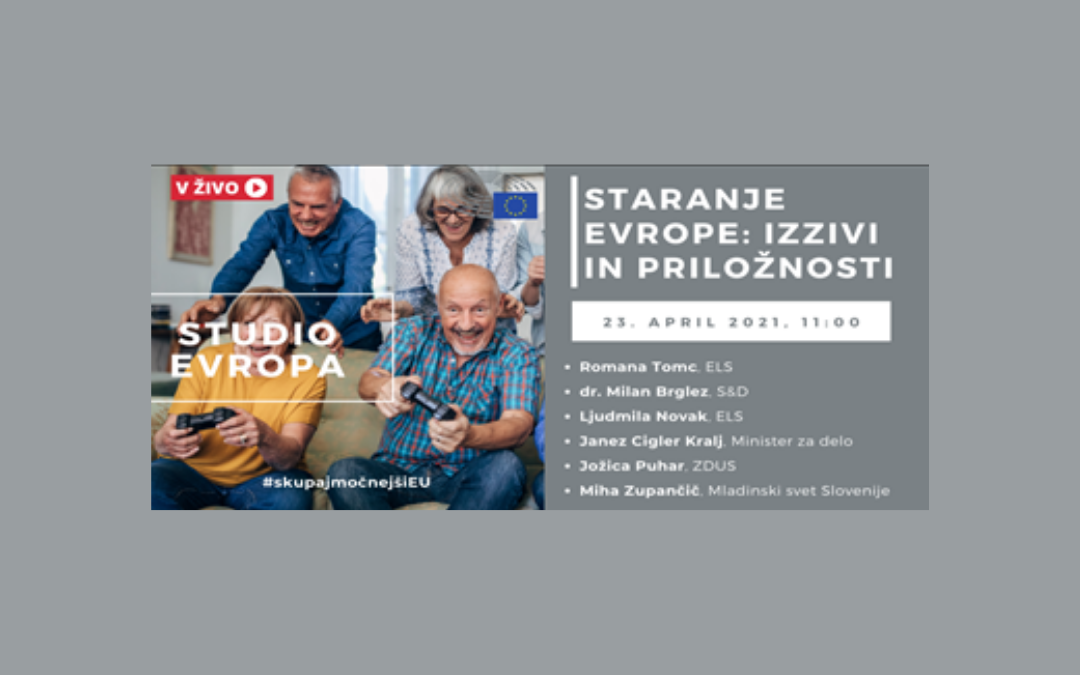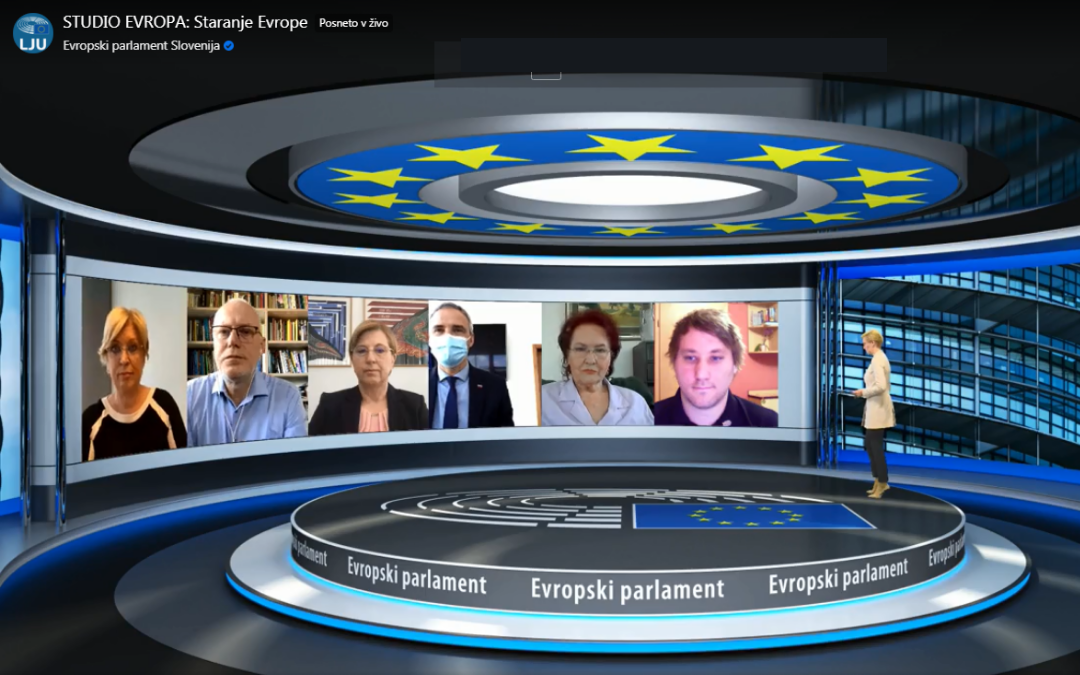Demographic changes, the ageing of the European population, long-term (health) care, intergenerational cooperation are challenges that the TV presenter Petra Prešeren talked about with prominent Slovenian representatives of the mentioned areas. Green Paper on Ageing plays an essential role in this. The interlocutors could not avoid acknowledging lifelong learning as a necessary tool for solving demographic complications in the future.
The congress took place online at Studio Europa on April 23. The video can be viewed on YouTube and the FB page of Studio Europa (both in Slovenian). The questions were addressed to the Minister of Labour, Family, Social Affairs and Equal Opportunities Janez Cigler Kralj, the Vice President of the Association of Pensioners’ Associations of Slovenia Jožica Puhar, the President of National Youth Council of Slovenia Miha Zupančič and three Members of the European Parliament: Romana Tomc, Milan Brglez and Ljudmila Novak.
Right at the beginning, the Minister was invited to speak when asked when we can expect the long-awaited law on long-term care. He presented it as a crucial reform of this government and promised the act’s adoption for June, when it will also start to be implemented. He stressed the importance of liaising with the Ministry of Health. He also announced new facilities in nursing homes.
Ageing is not a disease, ageing is a normal human condition, and it is our duty to support it.
Romana Tomc emphasised the need for demographic changes at the EU level. Striving for proper care for the oldest residents is also reflected in the fact that we have a commissioner for this area for the first time in history.
Dr Milan Brglez regrets that the Green Paper on Ageing does not interfere with human rights and does not address longevity. He is also concerned about the phenomenon of ageism. He advocates common standards for long-term care at the European level.
Miha Zupančič spoke about intergenerational cooperation. He warned about miscommunication, which can deepen differences instead of helping to connect and understand each other.
We are moving from initial solidarity to intergenerational conflict, as young people do not understand that the elderly also need social contacts. On the other hand, we often hear that young people and their parties are to blame for the spread of the new coronavirus.
Ljudmila Novak pointed out that we were poorly prepared for the pandemic. In her view, the Green Paper on Ageing promotes solidarity and responsibility between generations. The educational aspect of awareness is also crucial.
Jožica Puhar also pointed out the fact that the pandemic had revealed some issues. Among other things, it showed the precarious and disorderly status of volunteers, discriminatory treatment of the elderly and inadequate funding of health services in nursing homes.
Awareness of the importance of lifelong learning, healthy ageing and being active in old age needs to be raised.
Good practice
Speakers highlighted some examples of good practices of intergenerational cooperation, such as the projects Seniors for Seniors and Grandma Service in Slovenia and some interesting international projects with which the institutions are striving to ensure they have a workforce in health and social care. They showed a short video about moving to the countryside to solve young families’ housing and employment hardships.
The interlocutors agreed that awareness-raising is crucial. Ageing affects everyone, as the desire for a long life is universal. In the future, a lot of money will be available for employment in the care of the elderly; however, there is little interest, especially in Slovenia. Both Romana Tomc and Miha Zupančič pointed out the importance of raising the reputation of demanding professions related to health and social care for the elderly. The latter made some concrete proposals: employees should be offered bonuses, be paid appropriately, as this is also a way to make this kind of work attractive and highlight the honourable role of all those who care for others. It is not just a job; caring for others is a mission.
Money will certainly not solve all dilemmas, but it will help. Awareness is what leads to success. First and foremost, it is important to be aware that ageing affects everyone. We tried to internalise the thought “Time does not have the power to make me old” at the EAAL consultation event three years ago, but the years go by. Let us use them to learn – including how to deal with ageing.
Adopted by: Ana Peklenik (ana.peklenik@acs.si), SIAE


